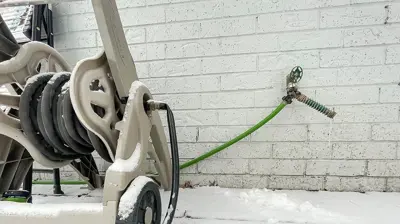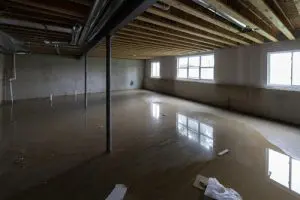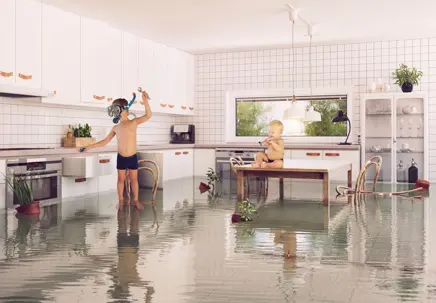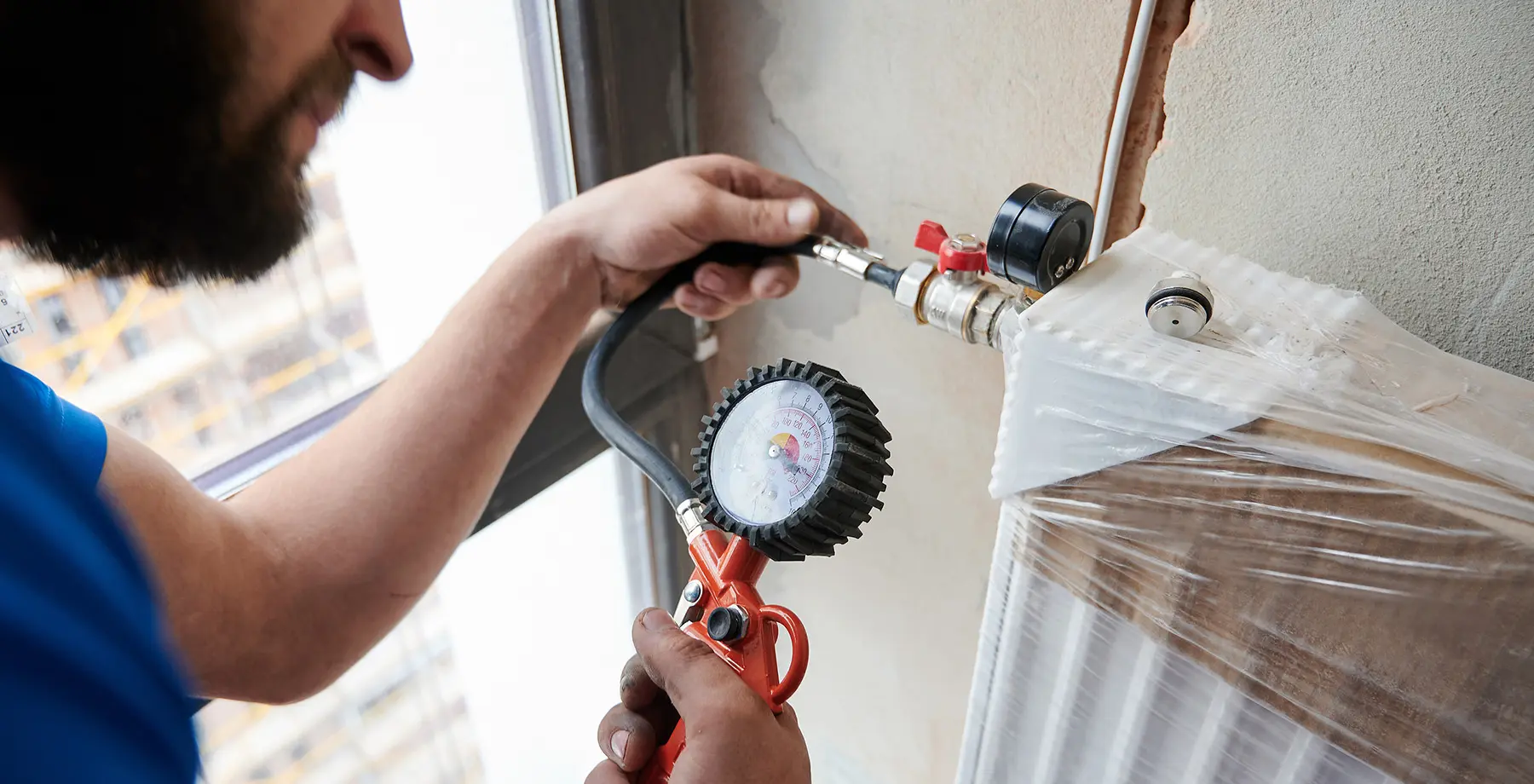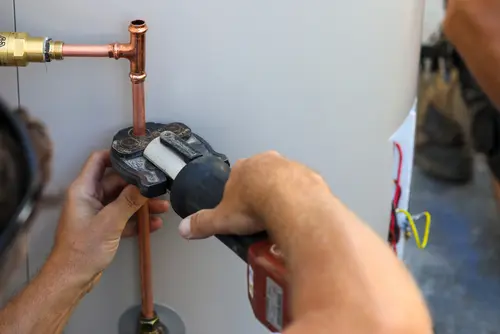Solving the Mystery of Low Water Pressure in Your House
by AAA City Plumbing
Understanding and Solving the Mystery of Low Water Pressure in Your House
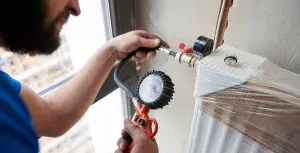
Low water pressure can be one of the most frustrating issues a homeowner can face. Whether you’re taking a shower, washing dishes, or watering your garden, low water pressure can turn even the simplest tasks into annoying challenges. If you’ve noticed that the water isn’t flowing as forcefully as it used to, it’s time to investigate and address the issue.
In this comprehensive guide, we will explore the most common causes of low house water pressure and provide practical, natural solutions homeowners can try. We will wrap up by highlighting when it’s time to contact a professional plumber, like AAA City Plumbing.
What Causes Low Water Pressure in My House?
Several factors can contribute to low water pressure in a home. By understanding the root causes, you can more effectively address the problem and restore your water pressure to satisfactory levels.
1. Clogged or Blocked Pipes
Over time, pipes in your plumbing system can become clogged with mineral deposits, rust, or debris. This naturally leads to reduced water flow and lowered pressure.
2.Leaks in the Plumbing System
Even a small leak can have a big impact on water pressure. If water is leaking out of the system before it gets to the fixtures, you’re likely to notice reduced pressure.
3.Faulty Fixtures
Faucets, showerheads, and other fixtures can become clogged with scale and sediment. This is especially common in areas with hard water.
4.Problems with the Water Main
Issues originating from the municipal water supply or your home’s connection to the mains can affect water pressure. Broken water mains or routine maintenance conducted by the city can also cause temporary pressure drops.
5. Malfunctioning Pressure Regulator
Many homes have a pressure regulator installed. If it’s set incorrectly or is failing, it could cause either low or excessively high water pressure.
6. Closed or Partially Closed Shut-Off Valve
The main shut-off valve controls the flow of water into your home. If it’s not fully open, the water pressure to your entire house can be negatively affected.
Natural Tips to Fix Low Water Pressure
Before calling in the pros, there are several natural, DIY steps you can take to potentially resolve low water pressure issues.
1. Clean Showerheads and Faucets
Over time, mineral deposits can clog fixtures. Here’s how to clean them naturally:
– Remove aerators, showerheads, or faucets from their fittings carefully.
– Soak them in a bowl filled with a mixture of white vinegar and water (equal parts) for several hours or overnight.
– Use a brush to scrub away any residue.
– Reattach and check for improvement in water flow.
2. Check for Leaks
Visual inspections can often reveal leaks. Here’s a simple way:
– Check around faucets, under sinks, and along exposed pipes in basements or crawl spaces for visible dripping or wet spots.
– For harder-to-find leaks, shut off all water-using appliances and note the number on your water meter. Come back after a few hours of not using water. If the number has changed, you likely have a leak.
– Address any leaks immediately as they not only reduce water pressure but can cause significant damage over time.
3. Inspect Pressure Valve
If you have a pressure regulator, ensure it’s functioning correctly:
– Locate the valve (usually found where the main water line enters your home).
– Adjust it to increase or decrease water pressure. If it appears damaged or faulty, consider replacing it.
4. Flush the System
A blockage can sometimes be cleared by flushing the entire system:
– Turn off the main water supply.
– Open all faucets and drain water from your system.
– Turn the supply back on and let water run through all fixtures for a few minutes to help clear any potential blockages.
5. Address Mineral Build-Up in Pipes
If your local water is hard, long-term mineral buildup in pipes could be the culprit:
– Use a vinegar solution or a commercial descaling product to periodically clean your pipes.
– Consider installing a water softener to help prevent future buildup.
When to Call AAA City Plumbing
Despite your best efforts, some plumbing issues require the expertise of a professional. If the water pressure remains low or you suspect a more significant problem, it’s best to reach out to a trusted local plumber.
Here’s why AAA City Plumbing should be your go-to choice:
– Emergency Services: They offer prompt responses to urgent plumbing issues, ensuring that you’re not left dealing with low water pressure or other plumbing issues for long.
– Experienced Technicians: Their team comprises experienced and certified plumbers equipped to handle any challenge.
– Customer-Centric Approach: With a reputation for exceptional customer service, they’ll ensure the job is done to your satisfaction.
– Transparent Pricing:They offer clear, upfront pricing so there are no surprises when you receive your bill.
You can learn more about their services and reach out for professional help by visiting their website https://www.aaacityplumbing.com
—
In conclusion, low water pressure in your home can stem from various sources, including clogged fixtures, leaks, or even issues with the water main. By taking a systematic approach, you can often identify and resolve the problem yourself. However, if the issue persists, don’t hesitate to contact a professional.
Remember, AAA City Plumbing is just a call or click away and ready to ensure that you always have a reliable water supply with adequate pressure.
So, if you’re experiencing low water pressure in your home and need expert assistance, visit [AAA City Plumbing](https://www.aaacityplumbing.com) or give them a call. They’re there to help keep the water flowing smoothly in your home.
—
For more helpful guides and tips on home maintenance, stay tuned to our blog! Grab money saving coupons on the website.

$50 OFF Any Plumbing Service
Not combinable with other offers.
Must mention Parker to receive this discount.
Valid Jan 1, 2025 - Dec 31, 2025
Providing professional plumbing services for nearly 30 years. We love what we do and will always treat your home as if it was our own.
Whatever your plumbing need, we are here to solve your plumbing problem and make your home or business a place you can enjoy stress-free.
We hire top-notch plumbers in the area because your home & business deserve the very best.
Have a Plumbing Emergency in Charlotte, Rock Hill, or a surrounding area?
Let AAA City Plumbing help! Schedule your service today!
